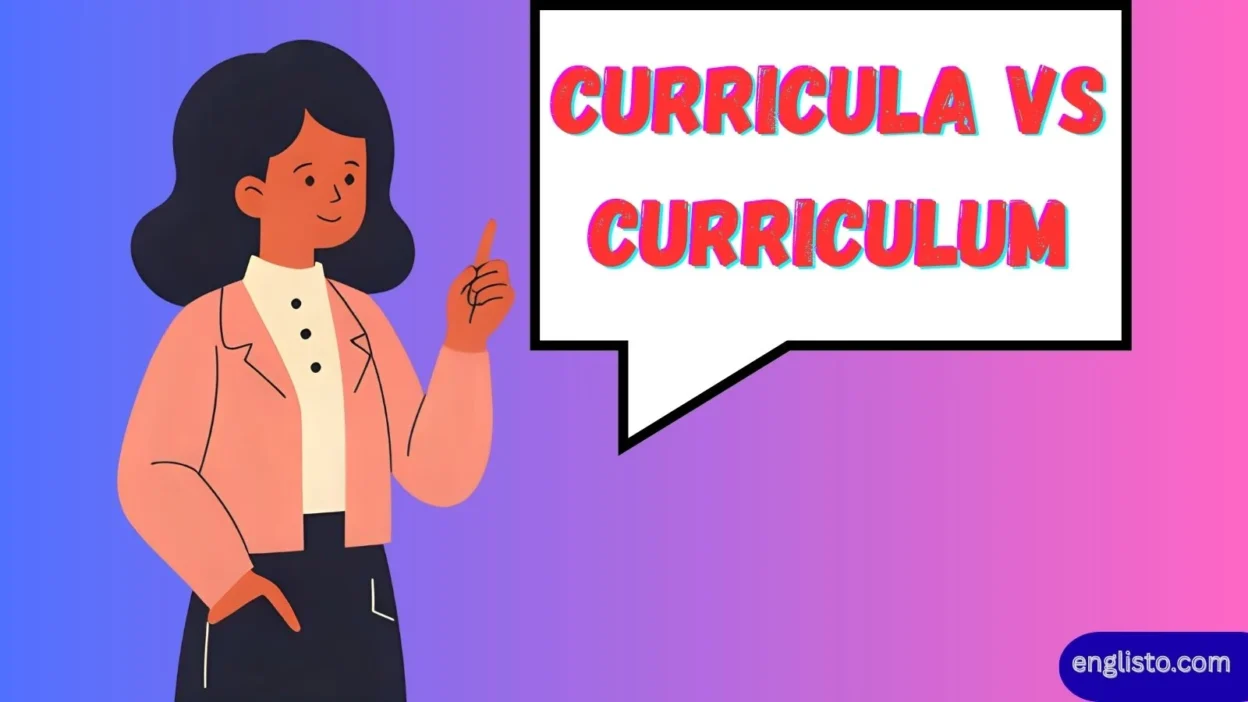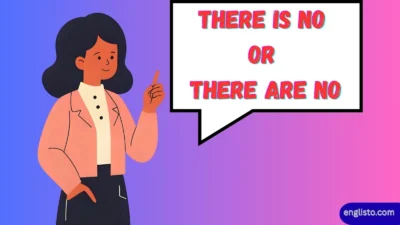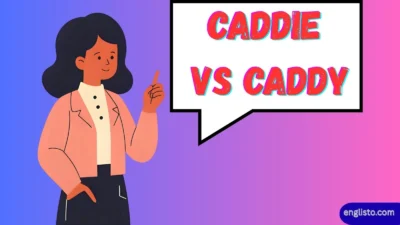Language is a funny thing. Sometimes, a single word can send us down a rabbit hole of debates, grammar rules, and history lessons. One such pair that often trips people up is “curriculum” vs. “curricula.” Teachers, students, and even writers frequently wonder: Which one is correct? Should you say “school curricula” or “school curriculums”? Curricula vs Curriculum.
This guide clears the air. We’ll dive into meanings, grammar rules, history, and even some real-life usage examples. By the end, you’ll know not only which word to use but also why it matters.
What Does “Curriculum” Mean?
The word curriculum is a singular noun that comes straight from Latin. It literally means “a running” or “a course.” Over time, it evolved to describe a planned course of study in schools, colleges, and universities.
Think of it as a blueprint for learning. A curriculum tells us:
- What subjects are taught
- The order in which topics appear
- What materials, books, and assignments students will use
- The goals and skills students should master
Examples:
- The 11th-grade biology curriculum includes genetics, evolution, and ecology.
- A kindergarten curriculum might cover phonics, sight words, and handwriting practice.
In short: Curriculum = one structured program of study.
Read More: “Hang” or “Hung”: The Complete Guide to Usage, Grammar, and Meaning
What Does “Curricula” Mean?
Now, here’s where things get interesting. The plural of curriculum is traditionally curricula (because of its Latin origin). So when you’re talking about multiple sets of courses or programs, you use “curricula.”
Examples:
- Universities often compare their engineering and business curricula.
- Over the years, school boards have revised their curricula to meet new standards.
Notice how “curricula” points to different, distinct programs of study.
What About “Curriculums”?
If you’ve heard “curriculums” before, you’re not wrong. While “curricula” is the classical plural, “curriculums” is also widely accepted in modern English—especially in American contexts.
- Formal/academic writing: “Curricula” is preferred.
- Everyday or informal writing: “Curriculums” is fine.
Example:
- Traditional: “The department compared several science curricula.”
- Modern: “The school offers different curriculums for arts and sciences.”
Both are correct—it just depends on tone, audience, and context.
Curriculum vs. Curricula: The Core Difference
Here’s a quick table to make it stick:
| Word | Singular/Plural | Usage Context | Example Sentence |
| Curriculum | Singular | One course or program of study | “The high school curriculum includes math, science, and history.” |
| Curricula | Plural (traditional, Latin) | Multiple distinct programs | “Universities update their curricula every academic year.” |
| Curriculums | Plural (modern, English) | Accepted in informal/common use | “Several curriculums are available for online learning.” |
The Latin Roots: Why “Curricula” Exists
To understand why we have these forms, let’s rewind to Latin.
- The root word is “currere” = to run.
- “Curriculum” = a running/course.
- In Latin, nouns ending in -um form plurals with -a → curriculum → curricula.
This is the same rule we see in:
- Stadium → Stadia
- Datum → Data
- Medium → Media
English borrowed the word directly, and we kept the plural form. That’s why grammarians still insist “curricula” is the technically correct plural.
Usage in Education Today
Schools, universities, and even governments use these terms constantly. Let’s see some contexts:
- K–12 Schools: Curriculum refers to the specific lessons and standards for each grade. Curricula are the different subject areas—math, science, language arts.
- Universities: Faculties or councils decide curricula for majors like philosophy, business, or engineering.
- Policy & Reform: Governments update national curricula to integrate new subjects (coding, environmental studies, AI literacy).
Quote from education policy:
“Updated curricula ensure students are prepared for 21st-century skills.”
Curriculum vs. Curricula in American vs. British English
There’s also a regional twist:
| Region | Preferred Plural | Notes |
| American English | Curriculums (common), Curricula (formal) | Both used, curriculums more everyday |
| British English | Curricula (preferred) | Seen as more proper/traditional |
So if you’re writing for an American audience, “curriculums” won’t raise eyebrows. But in the UK, “curricula” still dominates.
Common Confusions and Memory Tools
It’s easy to forget which form is correct. Here are some mnemonics:
- Curriculum = one. Curricula = a lot.
- If you see the letter “a” at the end, think of “a group of many.”
- “Curriculums” works because English often just adds -s (like book → books).
Real-Life Examples
Curriculum:
- “The curriculum for 3rd grade emphasizes reading fluency.”
Curricula:
- “Colleges design different curricula for liberal arts and sciences.”
Curriculums:
- “Online platforms offer flexible curriculums for working professionals.”
Synonyms You Can Use
Sometimes, switching the word avoids confusion.
| Word/Phrase | When to Use | Example |
| Syllabus | For one course outline | “The English syllabus includes Shakespeare.” |
| Program | For a set of courses at college/university | “The MBA program has a rigorous curriculum.” |
| Course of study | General/neutral | “The course of study integrates history and politics.” |
| Academic plan | Administrative/official | “The academic plan aligns with state standards.” |
Everyday Sentences Comparing Them
- Singular: “This school’s curriculum focuses on character education.”
- Plural (traditional): “Different schools adopt different curricula.”
- Plural (modern): “The ministry approved five new curriculums.”
Quick Grammar Rules
- Stick with curricula in formal essays, reports, or academic writing.
- Use curriculums when writing casually, blogging, or talking to a general audience.
- Always use curriculum when describing just one program.
FAQs on “Curricula vs. Curriculum”
Q1: Which is more correct—curricula or curriculums?
Both are correct. “Curricula” is traditional (Latin-based), while “curriculums” is modern and widely used in American English.
Q2: Is curriculum singular or plural?
“Curriculum” is singular. Its plurals are “curricula” (classical) or “curriculums” (modern).
Q3: Do schools use curriculum or curricula?
Schools use “curriculum” when talking about one program and “curricula” or “curriculums” when referring to multiple programs.
Q4: What’s the difference between curriculum and syllabus?
A curriculum is the entire course of study, while a syllabus is the outline of one specific subject or class.
Q5: Which plural should I use in formal writing?
Use curricula in formal contexts like academic papers, policy documents, or professional reports.
Conclusion
The debate between “curriculum” and “curricula” is more than just grammar nitpicking—it’s about history, language evolution, and audience awareness.
- Use curriculum for one program.
- Use curricula in academic or traditional contexts.
- Use curriculums in modern, everyday English.
At the end of the day, language adapts. Both plurals are correct—it’s about knowing your audience and choosing wisely. Whether you’re a teacher writing lesson plans, a student drafting essays, or a professional updating training modules, understanding this difference will help you write with confidence.



